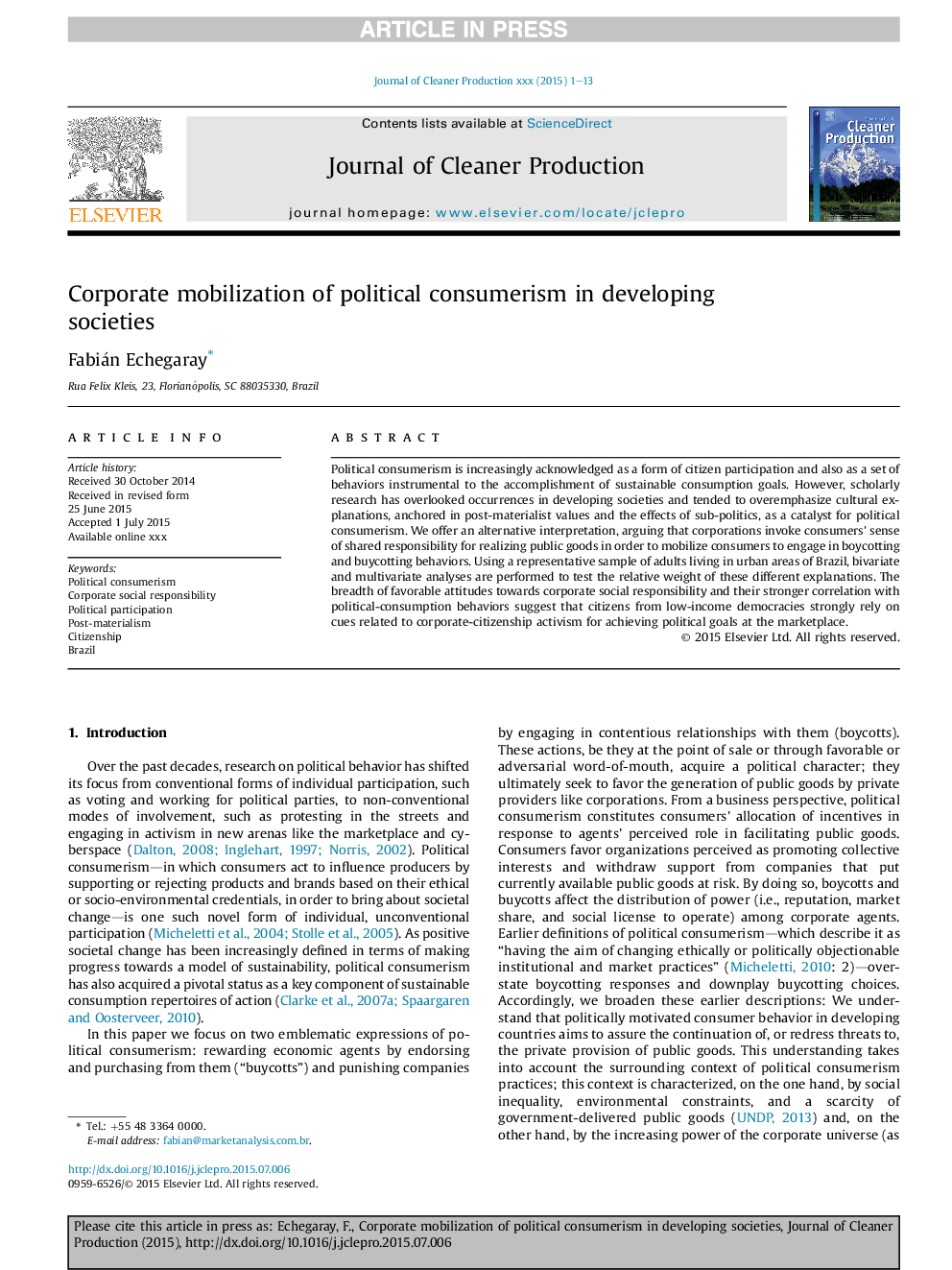| Article ID | Journal | Published Year | Pages | File Type |
|---|---|---|---|---|
| 10687778 | Journal of Cleaner Production | 2016 | 13 Pages |
Abstract
Political consumerism is increasingly acknowledged as a form of citizen participation and also as a set of behaviors instrumental to the accomplishment of sustainable consumption goals. However, scholarly research has overlooked occurrences in developing societies and tended to overemphasize cultural explanations, anchored in post-materialist values and the effects of sub-politics, as a catalyst for political consumerism. We offer an alternative interpretation, arguing that corporations invoke consumers' sense of shared responsibility for realizing public goods in order to mobilize consumers to engage in boycotting and buycotting behaviors. Using a representative sample of adults living in urban areas of Brazil, bivariate and multivariate analyses are performed to test the relative weight of these different explanations. The breadth of favorable attitudes towards corporate social responsibility and their stronger correlation with political-consumption behaviors suggest that citizens from low-income democracies strongly rely on cues related to corporate-citizenship activism for achieving political goals at the marketplace.
Keywords
Related Topics
Physical Sciences and Engineering
Energy
Renewable Energy, Sustainability and the Environment
Authors
Fabián Echegaray,
